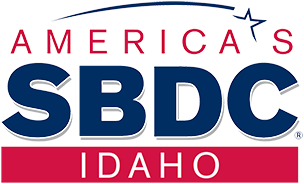Tax Preparation Clinic
This event has been canceled
More than half of the tax filing public pay someone to prepare and file their tax returns. Tens of thousands more rely on volunteer preparers in the IRS sponsored Volunteer Return Preparation Program. Tax law can be a bit intimidating, but it doesn’t have to be if you understand the rules. This course provides the knowledge you will need to maximize benefits on a tax return while maintaining high ethical and legal standards.
Successful completion of this course will prepare you to certify as an advanced level volunteer tax preparer at a Volunteer Income Tax Assistance (VITA) site near your home in south-central Idaho. The course covers those aspects of tax law required to prepare federal and Idaho income tax returns for most low and moderate income taxpayers who do not have business with inventory and/or depreciable assets. Tax law topics include choosing a filing status, rules for claiming dependents, determining taxable income, reporting income from all sources, including foreign countries, adjustments to income and deductions—the standard or itemized, and credits such as the Child and Addition Child Tax Credits, the Earned Income Tax Credit, Educational Credits, and the Child & Dependent Care Credit. Idaho tax law topics will include Idaho residency rules, the differences between federal and Idaho taxable income and common credits available to Idaho taxpayers. The training will also cover interviewing taxpayers and quality assurance reviews of completed returns. The training will include hands-on practice in preparing tax returns using the TaxSlayerPro software that the IRS provides to (VITA) and Tax Counseling for the Elderly (TCE) sites.
Upon completion of this course, students should be able to successfully complete the on-line IRS LinkandLearn Certification test at the Advance Level which will qualify them to serve as return preparers at VITA and TCE sites. IRS online training in these topics is available for those who cannot attend all classes.
Special sessions will cover:
- Procedures to use when the taxpayer is not present when the return is prepared and/or reviewed, including the use of secure client portals;
- How to help taxpayers with tax ID numbers issued by the IRS to those not eligible for social security numbers and foreign workers temporarily employed in the U.S..
- Preparing returns for foreign guest workers who are not in the U.S. the entire year.
Register now for this 8 session clinic that runs from January 3rd - 5th and 8th - 12th
Instructor
.png?csf=1&web=1&e=q6YKfn)
Bob Wunderle
La Posada Tax Clinic
CPA
Bob has a Master’s Degree in Business Administration and has taught accounting as an adjunct professor for the University of Maryland and as a Graduate Teaching Associate at Arizona State University. After retiring from the Air Force, Bob embarked on a second career as a certified public accountant. In 2005, he established a Low Income Taxpayer Clinic at La Posada Ministries, a faith based charity in Twin Falls, Idaho, established to help immigrants and temporary foreign workers adapt to life in the United States.
In 2009, when an H-2A worker sought tax help from La Posada’s Tax Clinic, Bob discovered that the IRS was not providing adequate guidance to employers on how to report H-2A workers’ income. As a consequence, income was often reported incorrectly or not at all. Most workers were not filing tax returns, and those who did, were being harmed by IRS processing errors. As a result of his advocacy on behalf of the workers, the IRS revised various forms, instructions and publications and significantly expanded the information on its web site to better inform employers and H-2A workers of their income tax reporting and filing responsibilities.
To help tax practitioners better understand how to help H-2A and other temporary foreign workers, Bob wrote an article published in the National Association of Enrolled Agents Journal entitled–Serving Foreign Workers-What You Don’t Know Can Hurt Them. He also provides CPE/CLE workshops on this topic and informational programs for agricultural employers, H-2A/B workers and social service agencies helping low income and non-English speaking populations.
Fee: No Cost





